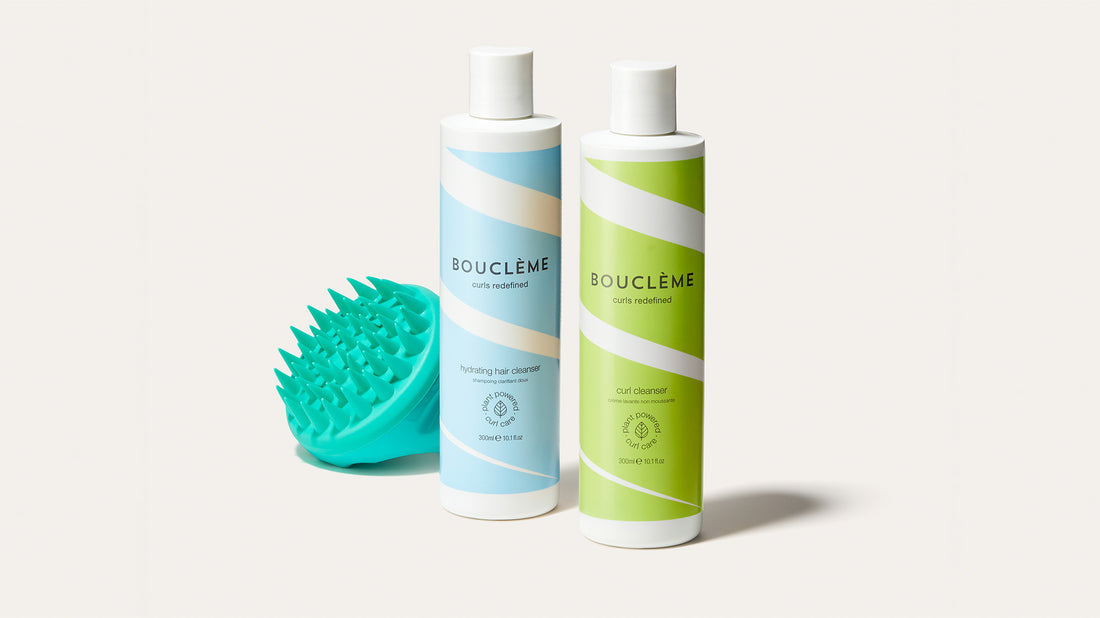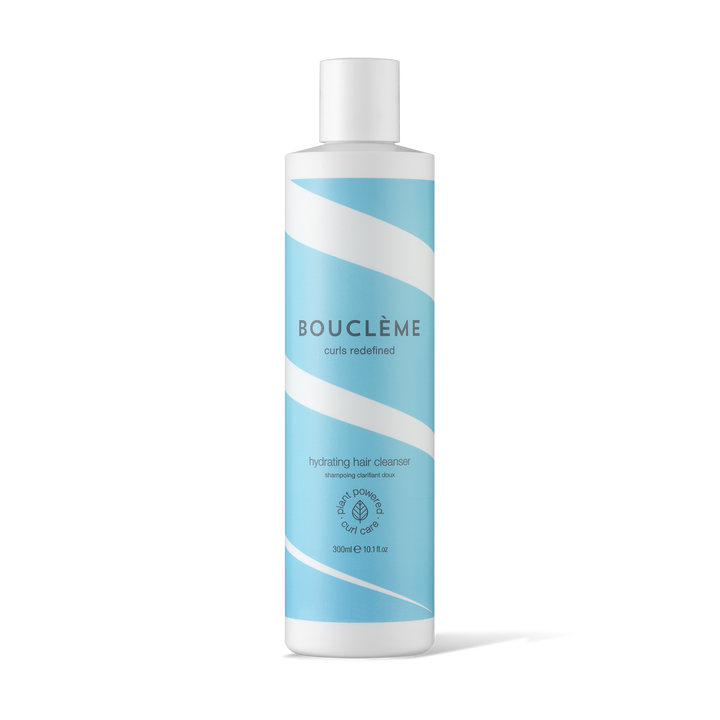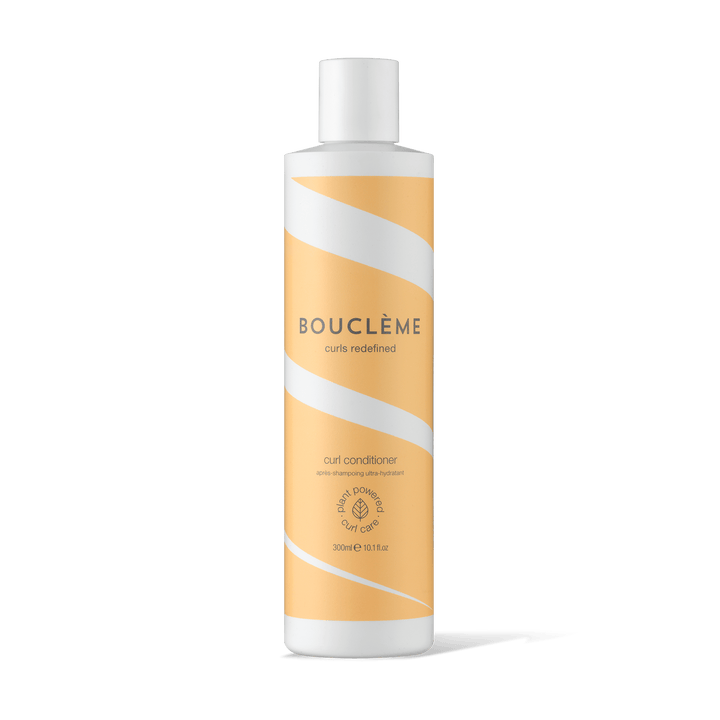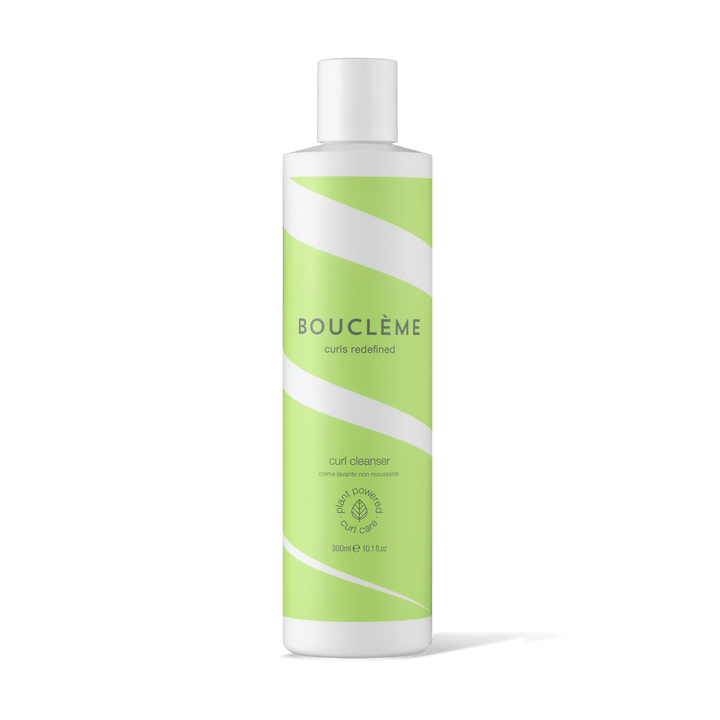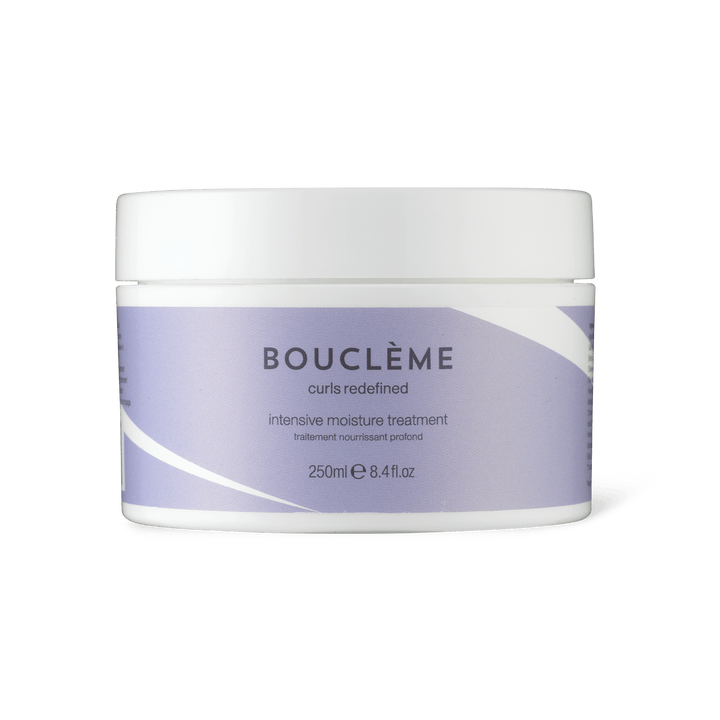Why are sulphate-free and paraben-free shampoos better for you?
Few things are as satisfying as a rich lather while shampooing or the squeaky-clean feeling that follows. But did you know this foam is thanks to sulphates, powerful detergents that create that familiar froth? Here’s the catch: while it may feel refreshing, frequent use of sulphates can strip your hair of its natural oils, leaving it dry, brittle and prone to frizz.
As the world of haircare evolves, there’s been a growing shift in how we think about shampoo ingredients. Once seen as essential, sulphates and parabens – chemicals used to keep cosmetics fresher for longer – are now being re-evaluated, leading many to reconsider their role in our daily routines.
At Bouclème, we’re not just following the ‘skinification’ trend of treating our scalp with the same care as our skin – we’re at the forefront of this movement, offering products that prioritise both your wellbeing and the environment. So, why are sulphate- and paraben-free shampoos better for you? Let’s discover why these choices are more than just a trend – they’re a smart step towards healthier, more vibrant hair.
What are sulphates and parabens?
Sulphates and parabens are common ingredients found in many personal care products, including shampoos.
Sulphates, such as sodium lauryl sulphate (SLS) and sodium laureth sulphate (SLES), are surfactants – chemical cleansing agents, also known as detergents, used to create a rich lather and remove dirt and oils from the hair, allowing it to be easily rinsed away.
Parabens are preservatives added to prevent the growth of bacteria and mould, extending the shelf life of products.
Why sulphates aren’t great for curls
Sulphates are the chemicals and ingredients added to shampoos that give you that clean-hair feeling. They remove dirt, grease and other impurities, and create that bubbly lather we all know. However, their aggressive cleaning action isn't good news for your locks. Here’s why:
- Sulphates strip hair of its natural oil and moisture, leaving it brittle, lifeless and likely to shed or snap.
- Coily and curly hair in particular can struggle to retain moisture and feel dry at times, which definitely isn’t helped by sulphates.
- Sulphates strip coloured and chemically processed hair, meaning your treatments and colour aren’t as long-lasting.
- Sulphates can cause irritation and exacerbate conditions like eczema or psoriasis – bad news for those with sensitive scalps.
- Sulphates’ environmental impact is concerning. These chemicals can end up in waterways, affecting aquatic life and contributing to pollution.
OK, so what is paraben-free shampoo?
Paraben-free shampoo is a haircare product formulated without parabens, which are synthetic preservatives used to extend the shelf life of personal care products.
These preservatives are effective in preventing the growth of bacteria and mould, but have been associated with potential health concerns, including hormonal disruption. There’s more:
- Studies have shown that parabens can mimic oestrogen in the body. This hormonal disruption has been linked to various health concerns, including potential links to breast cancer.
- Parabens accumulate in the body over time, raising concerns about their long-term effects.
- Parabens can affect aquatic life when they enter water systems, disrupting ecosystems.
What are the benefits of sulfate- and paraben-free shampoo?
Just as we wouldn’t use harsh detergents on our delicate facial skin, it’s time to reconsider our approach to hair and scalp care. This change signifies a move away from harsh cleaning agents and towards a more skincare-focused regimen – and we’re here for it!
Here are five reasons why choosing sulphate- and paraben-free cleansers, like Curl Cleanser and Hydrating Hair Cleanser, is a smart decision.
1 Brighter, longer-lasting colour
Shampoos that are sulphate and paraben free help maintain the vibrancy of your hair colour, so your hues stay fresh for longer.
2 Improved hydration
Sulphate- and paraben-free shampoo cleans your hair without stripping away its natural oils, which helps retain moisture and prevent dryness.
3 Gentle on sensitive scalps
Ideal for those with sensitive skin or allergies, using sulphate- and paraben-free shampoo and conditioner minimises irritation.
4 Reduced environmental impact
Sulphate- and paraben-free options contribute less to environmental pollution, supporting a more sustainable approach to personal care.
5 Lower health risks
Paraben-free shampoo reduces the risk of potential hormonal disruptions and long-term health concerns, making them a reliable choice for regular use.
Misconceptions about sulphate- and paraben-free shampoo
The world of hair care has come a long way, yet misconceptions about sulphate- and paraben-free products persist. Many people still believe switching to these gentler formulations means sacrificing the deep cleanse and luxurious conditioning they’re used to. However, this couldn’t be further from the truth.
The best sulphate- and paraben-free shampoo and conditioner is designed to offer thorough high-performance cleansing without compromising your health or the environment.
Our creamy, non-foaming Curl Cleanser is ideal for thirsty curls. Often referred to as a co-wash, it blends conditioning ingredients with mild cleansers that remove dirt and buildup while still nourishing curls.
For fine hair and oily scalps, our mild low-foaming Hydrating Hair Cleanser gently cleanses, leaving strands refreshed and nourished without weighing them down.
It’s time to set the record straight: choosing sulphate- and paraben-free doesn’t mean settling for less. Instead, it’s a step toward healthier, more vibrant hair care that aligns with both your personal values and the latest advancements in beauty science. Let’s debunk the myths, shall we?
They don’t clean as well
High-quality, natural ingredients can replace the harsh cleansing chemicals while delivering superior results. Sulphate-free cleansers, like Curl Cleanser and Hydrating Hair Cleanser use milder, yet effective, surfactants that cleanse your hair thoroughly while maintaining its moisture and vibrancy.
Paraben-free conditioners, like our Curl Conditioner and Intensive Moisture Treatment, provide the same level of nourishment and detangling power as their traditional peers, without the risks associated with long-term use of parabens.
They don’t work up a proper lather
One common misconception is that co-washes lack the satisfying lather of traditional shampoos.
In reality, Curl Cleanser and Hydrating Hair Cleanser use alternative surfactants, like decyl glucoside, which is so mild it’s often used in baby products. This mild cleansing base keeps greasy roots at bay, ensuring a thorough clean without the harshness.
You can’t treat specific scalp conditions and hair types
While sulphate-free and paraben-free shampoos are generally beneficial, it’s important to choose products suited to your specific hair type and scalp condition.
For instance, if you have oily hair, you might need a product that balances oil production without harsh chemicals. Bouclème is on it – we offer a range of shampoos that are sulphate and paraben free for dry, oily and sensitive scalps.
Explore shampoos that are sulphate and paraben free
Looking for the best sulphate- and paraben-free shampoo? Bouclème’s plant-powered cleansing products are the first step in your curly hair care routine. Gently removing oils, dirt and build-up to leave your hair nourished and hydrated, cleansing has never felt so good.
Making the switch to sulphate-free and paraben-free shampoo and conditioner isn’t just about following a trend; it’s about making a conscious choice for your health and the environment. Bouclème is proud to offer products that embody these values, providing you with gentle, effective and environmentally friendly options. By choosing paraben-free shampoo and conditioner, you’re not only caring for your hair but also taking a step toward a healthier planet. Learn more about cleansers for curly hair in our blog, Cleansing 101: Bouclème’s guide to shampoo for curly hair.
Explore our range of sulphate- and paraben-free shampoo and conditioner and experience the benefits of clean, safe and luxurious hair care.


